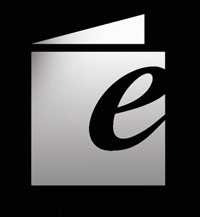Encounter Books
 | |
| Parent company | Encounter for Culture and Education, Inc. |
|---|---|
| Founded | 1997 |
| Founder | Peter Collier |
| Successor | Roger Kimball |
| Country of origin | United States |
| Headquarters location | New York City |
| Distribution | Perseus Books Group |
| Publication types | books |
| Official website | www.encounterbooks.com |
Encounter Books is an American conservative book publisher. It describes itself as "an activity of Encounter for Culture and Education, Inc." Encounter Books draws its name from Encounter, the now defunct literary magazine founded by Irving Kristol and Stephen Spender.[1][2]
Encounter Books publishes non-fiction books in the areas of politics, history, religion, biography, education, public policy, current affairs and social sciences.
Encounter Books was founded in 1998 in San Francisco by the Bradley Foundation, with Peter Collier as editor.[2][3] Collier retired in late-2005, and Encounter Books was taken over by the commentator Roger Kimball, who is also co-editor and publisher of The New Criterion. Kimball relocated Encounter Books to New York City in early 2006.
Encounter Books has published many well-known writers, including Brian C. Anderson, Conrad Black, Robert H. Bork, Ward Connerly, Theodore Dalrymple, Richard A. Epstein, John Fund, Victor Davis Hanson, Gertrude Himmelfarb, Peter Hitchens, David Horowitz, Leon Kass William Kristol, Jonathan V. Last, Yuval Levin, Andrew C. McCarthy, Kenneth Minogue, Stephen Moore, Melanie Phillips, David Pryce-Jones, Glenn Harlan Reynolds, Jean-François Revel, Jason L. Riley, Fred Siegel, Harvey Silverglate, Thomas Sowell, David Stove, and Keith Windschuttle.
Encounter Books is distributed by the Perseus Books Group.
The New York Times Bestsellers
Encounter Books has seen several of its titles appear on The New York Times Best Seller List, including Black Rednecks and White Liberals by Thomas Sowell, Climate Confusion by Roy W. Spencer, Willful Blindness by Andrew C. McCarthy and The Grand Jihad, also by McCarthy.
Encounter Broadsides
In October 2009, Encounter launched a series of short polemical booklets in the spirit of The Federalist Papers and Thomas Paine's Common Sense, called Encounter Broadsides. The series publishes well-known commentators on topical political issues from health care and immigration to Guantanamo Bay. Published Broadside authors include John R. Bolton, Victor Davis Hanson, John Fund, Michael Ledeen, Andrew C. McCarthy, Betsy McCaughey, Stephen Moore, and Michael B. Mukasey.
Publishers Weekly reported that the series would be entirely "crashed", or produced and marketed on an aggressive turnaround schedule.[4] Publisher Roger Kimball said of the series:
[T]he imprint will serve as “a new—or rather, a revival of an old—genre that is supple enough to respond quickly to unfolding events and yet authoritative enough to have an important effect on the debate over policy.”[4]
The New York Times Book Review
In June 2009, Encounter announced that it was no longer sending its books to The New York Times Book Review. At the time publisher Roger Kimball wrote:
"Once upon a time, and not that long ago, it meant something if your book was reviewed in The New York Times Book Review. A Times review imparted a vital existential certification as well as a commercial boost. Is that still the case? Less and less, I believe. The Times in general has lost influence as the paper has receded into parochial, left-liberal boosterism and politically correct reportage. And where its news and comment have become increasingly politicized, its cultural coverage has become increasingly superficial and increasingly captive of establishment, i.e., left-liberal, pieties and “lifestyle” radicalism.
Sure, a positive review in the Times still helps sell books. But it’s quite clear that books from Encounter won’t be getting those reviews, so it is pointless for us to send copies of our books to the Times—worse than pointless, because by so doing we help to perpetuate the charade that the Book Review is anything like even-handed in its treatment of conservative books. There is also this fact: the real impetus in selling books has decisively shifted away from legacy outlets like The New York Times towards the pluralistic universe of talk radio and the “blogosphere.” That is why Encounter can see its books on the Times’s bestseller list without ever making it into the paper’s review columns."[5]
References
- ↑ FrontPage Magazine
- ↑ 2.0 2.1 The Right Books and Big Ideas; The Nation; November 22, 1999
- ↑ Bradley Foundation Starts Book Publisher; Milwaukee Business Journals; May 7, 1998
- ↑ 4.0 4.1 "Encounter’s new imprint crashes short books", Publishers weekly.
- ↑ Encounter Books Says Goodbye New York Times; National Review